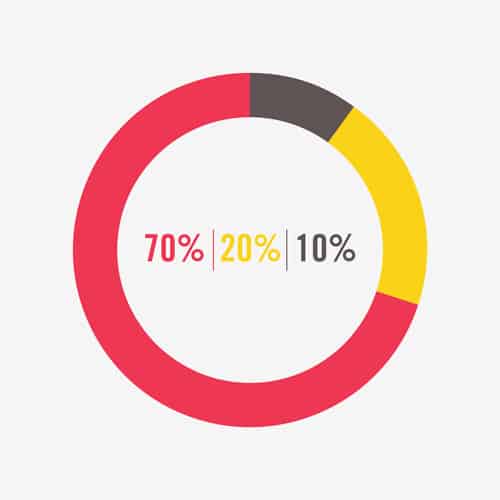- in Blog , Learning by David Wilkinson
- |
- 1 comments
Transfer of learning into the workplace – does classroom learning work?

Are workshops and class based learning events really effective? What evidence is there for the transfer of learning into the workplace from such learning interventions? A new study has examined whether there is real transfer of learning from workshop simulations and learning to ‘real-time’ workplace practice and problem solving. The study, took an in-depth look at a class of 25 experienced managers during and after a three-day simulated project management exercise to see what learning actually made it into real workplace situations.
- Transfer of learning into the workplace – the evidence
- 70:20:10
- Skepticism of classroom based learning approaches
- The primacy of on-the-job learning
- The difference between experience and expertise
- Experience
- Expertise
- The study
- The findings
- The emotional buffer
- Reference
Transfer of learning into the workplace – the evidence
Whilst there is much speculation and largely imprecise conjecture about the efficiency of classroom based learning and its transfer into the workplace, there isn’t actually that much hard research evidence available. What evidence that does exist about transfer of learning into the workplace is often contradictory and based on very old studies and data.
99% of everything you are trying to do...

...has already been done by someone else, somewhere - and meticulously researched.
Get the latest research briefings, infographics and more from The Oxford Review - Free.
The 70:20:10 methodology was developed in direct response to concerns about the actual transfer of learning into the workplace. 70:20:10 stands for:
- 70% ‘on the job’ experience based learning,
- 20% social learning from peers and mentors and
- 10% traditional classroom based learning
The methodology was designed around an understanding that classroom learning has limited impact. The 70:20:10 approach reflects a significantly reduced reliance on and meaning for class based learning and an enhanced role for contextualised practically oriented learning and development. The question is what evidence is there to back this methodology up?
The whole 70:20:10 approach characterises the persistent gulf between in class theory with ‘reality’ and practice based learning strategies. 70:20:10 is basically a criticism or sense of a lack of applicability of more academic approaches to learning and has a series of consequences, not least of which in terms of which approach actually produces change or learning?
Skepticism of classroom based learning approaches
This skepticism of classroom based learning approaches has resulted in a trend in industry to exert ever more control over professional education. This gulf between academia and practice has serious consequences for learners and their development, not least in the arena of critical thinking, evidence-based practice and reflection.
The primacy of on-the-job learning
Experience is largely seen in organisations as the currency of learning. A 20-year longitudinal study that was published in 2008 confirmed this by finding that 90% of learning in organisations is experiential, on-the-job learning, often without any systematic structure.
The difference between experience and expertise
Before looking at the study it is important to understand the distinction between
- An experienced operator and
- An expert
An experienced operator is someone who has had substantial exposure to a range of similar situations so that they can discern the patterns and structures of those situations. Experienced people then draw on their personal analysis of their store of experience to interpret current situations and find solutions based on their experience. However, if the situation is new or differs in significant detail, the experienced person may not notice the differences, misdiagnose the situation or have, due to the distinctive and peculiar nature of their experience, a biased view and analysis of the situation.
An expert on the other hand is someone who has added capacity for reflective evaluation. In other words, the expert both has experience and the ability to judge the level of objectivity of their knowledge. The expert draws on extensive external and structured evidence from research and not just from their experience. Additionally, the expert is continually updating their knowledge about the topic from external sources and thinking about the connections and mean of these sources of new information. In effect, the expert is a student of the situation who is continually updating their knowledge from external sources and who is questioning and challenging their own interpretation and beliefs of the situation at hand.
The study looked at the performance of 10 cohorts of masters students who engaged in a series of 3 day project management simulations held at Cranfield University. The aim of the exercises was to:
- Increase reflective practice and expert engagement.
- Increase ambidexterity (ambidextrous behaviour – the ability to both exploit and explore innovation).
- Increase decision making performance.
The study found that every cohort “struggled to deliver” their projects during the simulation and that their performance decreased as the simulations progressed. Additionally, during the follow up, the transfer of learning to the workplace was also found to be low.
The problem the study found, appears to be that moving from knowing the theory of effective practice to putting it into practice with the increasing complexity of a live simulation and real-life situations leads to an emotional buffer being hit. This emotional buffer impedes transfer of learning.
The study found that when it comes to the transfer of learning into the workplace a number of factors get in they way by creating stress, creating a range of negative emotions as the simulations get ‘more real’ and impede learning. These include:
- Time pressures,
- The participants intolerance of uncertainty,
- A lack of cognitive flexibility (borne from structured exercises and workplaces) and a
- lack of creativity
all contribute to stress and other negative emotions which bring about a sense of failure. Many students it was found ‘gave up’ and simply started following others as the complexity of situations increased.
Overall, a lack of comfort with failure from human error, unrealistic time frames, a lack of confidence, ambiguity etc. (at any stage) further impedes learning and transfer of learning into the workplace
It appears that, without further intervention, the structured and linear nature of learning in the classroom does not prepare people very well for the more complex and ambiguous world of work.
Reference – members login to see reference
How leaders lead organisational learning – Research Briefing
Be impressively well informed

Get the very latest research intelligence briefings, video research briefings, infographics and more sent direct to you as they are published
Be the most impressively well-informed and up-to-date person around...





3argumentative